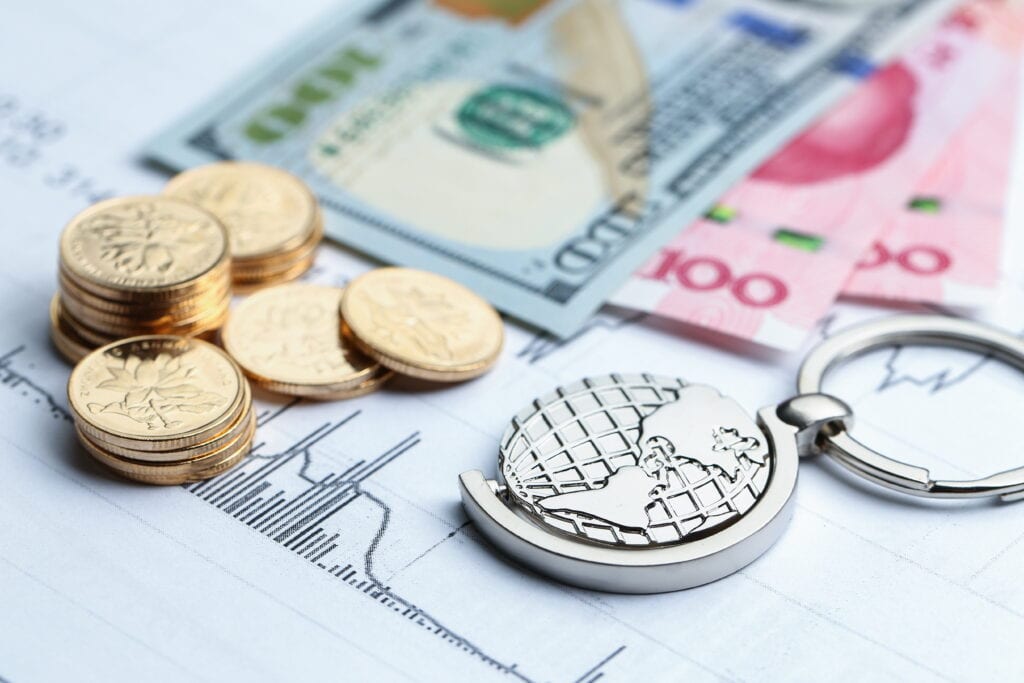Filing US Taxes as an American Living in Hong Kong
November 19, 2024 | Country Guides | 10 minute read
Expat Tax Blog. Tax Tips for US Americans abroad.
Updated December 26, 2024
 All blogs are verified by Enrolled Agents and CPAs
All blogs are verified by Enrolled Agents and CPAs
Updated December 26, 2024

Hong Kong is one of the most densely populated regions globally, but did you know it is also one of the world’s top financial centers? You can rest assured that you’ll still need to file US expat taxes if you are an American citizen living in Hong Kong. But at least you’ll be able to enjoy some of the world’s best dim sum and cha siu bao while you’re at it!
When exploring Hong Kong, brushing up on your Cantonese, and adjusting to an entirely new life than you’re used to in the US, you might ask yourself: How do I file my US taxes abroad?
We’ve compiled this guide to filing your expat taxes from Hong Kong to help you figure out when, how, and where to file!
Who Should File US Expat Taxes in Hong Kong?
Whether you’re a US Citizen or a US Green Card Holder, you’ll likely need to file annual US Expat Taxes from Hong Kong.
Now that you know you may need to file, it’s time to discuss the criteria for people who need to file a tax return. The IRS states that anyone who is either A) a US Citizen or B) a Green Card Holder and meets (or surpasses) the minimum income threshold must file a tax return.
If you file as Married Filing Separately and earned $5 of income in the past year, you must also file. Also, another not-so-obvious rule is that if you make more than $400 in net self-employment income, you will need to file regardless of the standard filing thresholds.
In 2025, you must file your 2024 taxes if:
- You earn more than $14,600,
- You make any self-employment income over $400, or
- You’re married, filing separately, and earn any worldwide income over $5.
IRS Deadlines for US Expat Taxes in Hong Kong
Now that you’re an American expat living in Hong Kong, enjoying a blend of Eastern and Western culture, it may come as a surprise that filing deadlines for Americans abroad differ from when living in the US. In America, you must file by April 15th. However, as an Expat there is an automatic extension from April – June. Therefore, being aware of your tax deadlines is a must.
| Standard Filing Deadline | April 15th |
| Payment Deadline for 2025 Taxes Due | April 15th |
| Automatic Extension for Expats | June 15th |
| Deadline for Expats Filing an Extension (by June 15th) | October 15th |
| FBAR Deadline for Expats | October 15th |
If any deadline falls on a holiday or weekend will be pushed forward to the next business day. For 2025, the automatic June extension will be pushed to June 17th as it falls on a weekend. We suggest checking your calendar ahead of time and setting a reminder for yourself a month or so in advance.
You Haven’t Filed Before? Let’s Catch You Up!
If you’re a US Citizen or a US Green Card holder, you probably have filed in the past before moving to Hong Kong. However, many Americans who are abroad may not realize their tax responsibilities follow them. Yup, as an American citizen, you still need to file a US tax return every year, even when living in Hong Kong or anywhere else, for that matter.
If you’re a ‘pro-expat’ or have previously spent time abroad, this may not come as a shock. But what about “Accidental Americans“?
You may be asking yourself who or what an Accidental American is. An Accidental American is a US citizen who has never lived in the US, so in this case, they would have only lived in Hong Kong. To better understand, a child was born and raised by a US Expat in Hong Kong and has never actually lived in America. It’s not time to worry if you have not heard of this. Let us help you understand your obligations to file a US tax return.
Getting Caught Up via The Streamlines Procedure
The IRS created The Streamlined Procedure to help Accidental Americans and Americans who have moved abroad without recognizing their tax filing duties
The Streamlined Procedure provides amnesty and a grace period for Americans to catch up on their US taxes by filing a limited number of past returns and FBARs without penalties.
We want to emphasize the importance of using The Streamlined Procedure BEFORE the IRS comes knocking and asks where you’ve been. If they reach you beforehand, you will not qualify to use the program and could face hefty fines.
The IRS offers this service, which may surprise many people, but it eases the burden on the IRS of chasing down accidental “tax evaders”. At the same time, it also encourages those who may have yet to realize they need to file to report their foreign assets and income.
You’ll be pleased to learn that MyExpatTaxes offers the most affordable and transparent pricing for the Streamlined Procedure. You can file all the necessary tax returns and FBARs, and a Tax Professional will assist and sign off on your submission.
Filing US Taxes for Your Family Abroad
Now that you’ve established that you must file US income taxes based on the IRS’s minimum income threshold let’s discuss which filing status you need to file under.
You’ll be able to determine how to file by answering a few simple questions. Are you married? If yes, your options are to file jointly or separately from your spouse. If you’re married and residing in the US, you’ll likely file Married Filing Jointly to receive the best tax breaks. But what if you’re married and living in Hong Kong? How should you file, then?
It depends: Is your spouse a US Citizen?
If your spouse is a US Citizen or Green Card holder, The best option is probably Married Filing Jointly. In the eyes of the IRS, you and your spouse are buying assets and earning money together no matter where you live globally, even in Hong Kong.
If your spouse is a non-US Citizen: If you’re living in Hong Kong and matrimony, and your spouse is not a US Citizen OR a Green Card holder, they do not have to file a US Tax Return. In that case, we generally advise clients to file Married Filing Separately. This way, your spouse’s financial information will stay out of the eyes of the IRS. Head of Household is another potential filing option if you have a US child.
Head of Household: Do you pay more than half to maintain your home/ household during the tax year with a qualifying child? It may be better to use the Head of Household status.
Child Tax Credits for Families Living Abroad
As a parent abroad, regardless of your Married or Single filing status, you may qualify to claim the Child Tax Credit. You can claim up to $1,700 per child in refundable tax credits during your time abroad while living in Hong Kong. Now, you won’t have to save up for the Kowloon Michelin Star Street Food Tour, which is a must-do, in our opinion!
You may have read about the higher Child Tax Credit, which requires parents to live within the US for at least half of the prior tax year. You’ll want to check if you qualify for the Child Tax Credit and how much you are eligible to receive.
The IRS might also permit you to file as a Head of Household if they do not recognize your marriage but still have dependent children.
This refund is only available if you do not use the Foreign Earned Income Exclusion (Form 2555), so it might not be suitable for higher earners in Hong Kong.
While most US Expats won’t owe US taxes, those in Hong Kong earning over $126,500 (or the latest FEIE maximum annual exclusion rate) will probably owe! Why? Because Hong Kong imposes a lower tax rate than the US, if FEIE is not enough to exclude all your income from US taxation, the US will still expect you to pay the difference between the two countries’ tax rates to them! So make sure you file in time for the April payment deadline.
Tax Forms Expats in Hong Kong Should Know
While you may have experience filing a 1040, there are assorted forms Americans in Hong Kong should be aware of, like FEIE, FATCA, FTC, and FBAR. Although there are other documents, you should know of these two main tax form categories.
Starting with forms that help expats avoid double taxation
Second are forms that allow you to report your foreign assets
Self-Employment in Hong Kong
Wow! You’ve taken the leap and moved to Hong Kong. Hopefully, you’re enjoying the cityscape and lush hiking trails that weave throughout the area. All this while being self-employed. That is no small feat. Take a moment to let your new life sink in. As in most places, Hong Kong has several regulations and rules for the self-employed and requires local filing.
But what about your US tax return?
3 Things to Know About US Taxes for the Self-Employed in Hong Kong:
- Anyone who earns $400 or more per year from self-employment needs to file a US Tax Return
- You may have to pay 15.3% of net profit in Self-Employment taxes to the US government
- Hong Kong doesn’t have a totalization agreement with the US, so you’ll need to be prepared to pay this US self-employment tax, which will ultimately help you continue to contribute to your US Social Security benefits account.
Do you know how to file and pay the minimum self-employment taxes to the US? MyExpatTaxes can help prevent you from paying more to the IRS than you currently may be!
Basics of Investing for Americans Living in Hong Kong
When you live overseas in Hong Kong, you can invest your money in several ways, just like in the US. Furthermore, there are strict regulations regarding expats and investments in Hong Kong. However, it isn’t impossible. In reality, investing is relatively simple once you know how to do it (and how not to do it).
Common Ways Expats Invest in Hong Kong:
RAs/ Roth IRAs: Are you saving for retirement and looking for a simple way to invest? It’s possible to invest up to $7,000 annually in a Retirement Account as an expat.
Property: American citizens living in Hong Kong are eligible to purchase property for personal use or as an investment
Keep it simple with US Stocks & Bonds: Keeping your stock and bond portfolio US-based is probably the easiest way to invest your money. Expats will incur higher tax rates and fees when investing in foreign investment products (like mutual funds).
If you decide to invest in Hongkongese mutual funds, MyExpatTaxes can help you there, too. You’ll report these investments to the IRS using Form 8611 (PFICs), which is available for a reasonable fee.
We always advise you to check with a local tax advisor to understand the pros and cons of having US-based investments on your local tax responsibilities while in Hong Kong.
Property in Hong Kong
Buying real estate is a common way to invest your money. Rentals are an excellent option for people who are still saving to purchase.
Buying & Selling Property
Buying: Maybe you would like to live in a lively area like Wan Chai, or maybe you are more interested in the family-friendly Repulse Bay. Either way, it is important to note that prices in Hong Kong are likely to be more expensive than in the US, along with higher taxes.
Purchasing a home or apartment in Hong Kong will not trigger a US taxable event. However, if you have a large deposit put into your Hongkongese bank account for your mortgage, you should prepare to report that on the FBAR and potentially Form 8938.
Read more: 8 Things to Consider When Buying Property Abroad.
Selling: When selling your property in Hong Kong, it is vital to accurately document the cost basis and selling fees to guarantee you only pay taxes on the sale profits. Like US properties, you may be able to exclude up to $250,000 or more of the gain from the sale of your Hong Kong property if you can satisfy the Section 121 Exclusion requirements. In other words, you must have used the property as your main home for at least two years out of the prior five years.
Benefits of Buying in Hong Kong:
- If done correctly, it can be a great investment return
- Owning your property allows more freedom to make changes
- Interest rates tend to be very low
The downside of Buying in Hong Kong:
- Residential property prices in Hong Kong are staggering and are considered one of the most unaffordable housing markets
- Properties in Hong Kong are leaseholds. As such, when the leasehold expires, they are generally subject to renewal
- As the seller, you will need to calculate the ‘stamp duty,’ which can be confusing without an estate agent
Renting Property:
Renting: Ownership rates lay right around 50% in Hong Kong, meaning an equal amount of people rent as people who own their property.
Perks of Renting in Hong Kong:
- If you’re still dipping your toes into living in Hong Kong, renting is an easy homing solution before jumping to a more permanent option
- Renting in Hong Kong is very flexible, and it is fairly painless to move around in Hong Kong due to the affordable professional movers
- Renting will likely be cheaper than buying property in the long term in Hong Kong
The downside of Renting in Hong Kong:
- Apartments in the city center tend to be smaller than what Americans are accustomed to
- You will have to return the property in the exact shape you received it
- Landlords generally increase the rental price when your contract ends
If you’re a landlord in Hong Kong, remember that you must claim your rental income and associated expenses from your Hong Kong properties on your US tax return.
The Foreign Housing Exclusion
Let’s not forget another way to reduce your US Tax Bill: The Foreign Housing Exclusion. It’s a reasonably simple way to account for expenses associated with your foreign housing, such as:
- Household Repairs
- Property Insurance
- Utilities
- Rent… and more!
Retiring Abroad in Hong Kong
With nearly 9 million American citizens living abroad, it’s no wonder you’re considering retiring in Hong Kong. Living near Macau, the Philippines, Cambodia, and other surrounding countries, your time as a retiree in Hong Kong means easy access to traveling throughout Asia.
If you’ve earned enough credits from the US Social Security system, you can claim your benefits while living in Hong Kong. It might also be beneficial to look into private pension options as it can be difficult for Americans to pay into the local system there.
Get Help Filing From the Experts
If, after reading our Expat Tax Guide for Hong Kong, you feel a tad bit overwhelmed, that’s okay! Here at MyExpatTaxes, we are the experts, and we are here to help. You can read through our HelpCenter for quick troubleshooting, get in touch with a Tax Professional, or, if you are ready to start your tax return, reach out to us via live chat anytime for any support.
For those still deciding where to go, we’ve got guides on Korea, Dubai, France, and More!
File Your US Expat Taxes with MyExpatTaxes
Made by expats for expats! We relate to how difficult it can be to tackle your taxes while living abroad. We built MyExpatTaxes to help expats living abroad. Expats like ourselves!
Transparent Pricing: You won’t find any surprises with us! We are clear and open about how our pricing works and what you’ll need to pay.
E-filing made easy. We can e-file 99% of expat tax returns, which means not only will your printer thank you, but it will also be less stressful! With us, it’s easy to e-file online.

Written by Nathalie Goldstein, EA
Nathalie Goldstein, EA is a leading expert on US taxes for Americans living abroad and CEO and Co-Founder of MyExpatTaxes. She contributes to Forbes and has been featured in Forbes, CNBC and Yahoo Finance discussing US expat tax.
November 19, 2024 | Country Guides | 10 minute read







